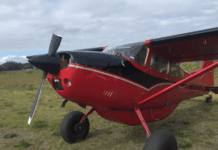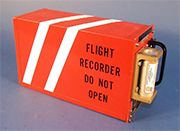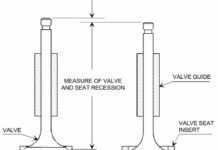 Introduction — Eric Jaderborg
Introduction — Eric Jaderborg
While I was working as an FAA inspector, every piece of advice I gave — written or oral — came with an elaborate disclaimer. When I left the agency I thought the need for such measures had passed. Phil, however, suggests that the need has just begun, to wit:
DISCLAIMER: The opinions appearing in this article — and each of its subsequent installments — as well as the free advice you are about to receive herein, while based on 10 years of experience at or near the bottom of the Federal Aviation Administration’s pecking order, are solely the opinions of the author and do not necessarily reflect the opinions or official policies of the FAA, the FAA Administrator, or anyone else employed by that or any other government agency. Furthermore, this author is not a lawyer (the other author is — but that’s his problem), therefore the advice offered herein does not constitute legal advice. While every effort has been made to achieve perfection, neither does this author warrant or guarantee the accuracy of his opinions or the efficacy of his advice, and no warranty is offered or implied. What’s more, the reader assumes all risk for acting on or interpreting said free advice (for which the reader has paid nothing). This makes it easier for the author, and harder for the reader — which, in the author’s opinion, is precisely how it should be in a free society (where free advice is offered freely).
 We love to fly. It is the quintessential “pursuit of happiness,” and for this reason we are inclined to think of flying as an inalienable right. It is as dear to some as the freedom of religion, which may explain why threats to our wings arouse in us such passionate emotions. Nevertheless, most of us recognize the importance of keeping the business of flying organized to the extent that it can be without stifling creativity, of keeping people from running into one another, and of preventing the harm that one thoughtless, slap-happy rogue can inflict on the rest of us. We mostly think of the “rogue” as someone else, however, and find it irksome being forced to shuffle through stacks of paper just to pursue this happiness while others who pursue more dangerous “happinesses” do not.
We love to fly. It is the quintessential “pursuit of happiness,” and for this reason we are inclined to think of flying as an inalienable right. It is as dear to some as the freedom of religion, which may explain why threats to our wings arouse in us such passionate emotions. Nevertheless, most of us recognize the importance of keeping the business of flying organized to the extent that it can be without stifling creativity, of keeping people from running into one another, and of preventing the harm that one thoughtless, slap-happy rogue can inflict on the rest of us. We mostly think of the “rogue” as someone else, however, and find it irksome being forced to shuffle through stacks of paper just to pursue this happiness while others who pursue more dangerous “happinesses” do not.
Until we figure out how to fly without strapping ourselves to some contraption, however, we’ll have something like the FAA around outlining requirements, granting privileges, and — sometimes — taking them away. It can be argued that the process by which the FAA yanks a person’s certificate is long, tortuous, expensive, unfair, and one-sided. It can also be argued that while this is going on the lonely airman twists slowly in the wind, tossing and turning in his “grounded” nightmares, impoverishing himself with the cost of his defense — purchased at an hourly rate that would be the envy of any FAA staff attorney — against a federal agency that seems always to have the money to fight, even when it doesn’t have the money to do anything else.
But there they are, and there they’ll be. This is not an article outlining the evils of the Federal Aviation Administration, and it is not a feel-good diatribe against “the system.” There is a time and a place for that, but this ain’t it. An airman who finds himself confronting a determined adversary with superior strength and resources needs more than a righteous cause, a fist to shake, or the shouted encouragement of supportive onlookers. He or she is David standing before the Philistine giant, Goliath of Gath, and it will take more than a handful of stones and a flourish of bravado to survive this encounter. Instead, this hapless soul needs some concrete advice on how to tip this monster back on its heels, and maybe bring it down under it’s own weight — at least to keep from being grounded unfairly.
The FAA is a massive bureaucracy with broad power. Engaging in combat with this agency over an enforcement action is no different than any other battle. There aren’t any cute tricks you can use to thwart the process. If it is to come, success will ride on the heels of preparation. To prepare, you must (1) marshal your forces in advance, (2) hold your tongue, (3) get your story straight, (4) know your adversary (this may require you to suspend some of your most cherished prejudices), and (5) seek proactive engagement.
In Part One of this series, Phil Kolczynski and I will examine the first two of these principles, each from his own perspective.
Introduction — Phillip J. Kolczynski
DISCLAIMER: My tips are not advice — they are suggestions. The difference is that you pay for advice. This is free; therefore, you should take it with a grain of salt. What’s more, these tips are general rules of thumb. The tips are NOT specifically designed as a quick cure FOR YOUR problems, they are written for everyone else’s problems. To get the right formula for your problem you have to hire a lawyer, pay him/her a lot of money and do exactly what he/she says. It’s not that there aren’t some good suggestions here. It’s just that I’ve learned in 25 years of practicing aviation law that what works in one case is not necessarily the best thing to do in another. That’s why I’m still “practicing” law.
 When we think of government power, federal agencies like the U.S. Justice Department, Department of Defense and the Internal Revenue Service come immediately to mind. But the FAA, in its own arena, may be more powerful. Aviation is one of the most heavily federally regulated industries in the United States. Pursuant to the Federal Aviation Act, Congress gave the FAA almost exclusive regulatory control over everything having to do with aviation safety: With few exceptions — such as where property interests are at stake — the states have very little to say about aviation. There are many competing interests that reign in the most prominent agencies, but the FAA has almost a free hand to do what it wants with its people and planes. All the FAA has to do is invoke the magic “S” word — safety — and almost everyone defers to the agency’s discretion.
When we think of government power, federal agencies like the U.S. Justice Department, Department of Defense and the Internal Revenue Service come immediately to mind. But the FAA, in its own arena, may be more powerful. Aviation is one of the most heavily federally regulated industries in the United States. Pursuant to the Federal Aviation Act, Congress gave the FAA almost exclusive regulatory control over everything having to do with aviation safety: With few exceptions — such as where property interests are at stake — the states have very little to say about aviation. There are many competing interests that reign in the most prominent agencies, but the FAA has almost a free hand to do what it wants with its people and planes. All the FAA has to do is invoke the magic “S” word — safety — and almost everyone defers to the agency’s discretion.
Did you ever notice on TV and in books how “suspects” have all kinds of “rights”? They can get their cases thrown out when their rights are not safeguarded. It’s different when the FAA threatens to suspend or revoke an airman’s certificate. The airman is not a suspect in a criminal sense because FAA enforcement actions are civil in nature. The result is that a criminal has more rights than you do. The agency doesn’t have to afford you the same degree of due process as a criminal. You’re just a privilege holder. The FAA issues the privileges. The FAA writes the rules. If you violate their interpretation of their rules they will take away your privileges. Now, as a result of recent federal case law (see “A Dangerous New Precedent in FAA Enforcement Law“), only the FAA can interpret its rules; moreover, non-published interpretations by FAA lawyers can trump even the reasonable interpretations by judicial authorities — now that’s power!
To understand your predicament, look at the fact that after the FAA finishes an investigation and decides you have violated rules, they don’t issue charges against you, they don’t file a lawsuit against you, they send you an “order”! You then have a right to “appeal” the order to the NTSB but the NTSB must defer to FAA interpretations. What happened to presumption of innocence? What happened to your right to trial? It doesn’t work that way. The FAA decides whether you have violated the FARs; they issue an order. You then have a right to appeal the order to the NTSB. You get a hearing to see if the order will stand. Some say you have a chance. Some say you don’t. I say: “Don’t let it go that far.”
Let’s look at what a former inspector who was a career employee of the FAA recommends on how to avoid an FAA certificate action. I will provide a lawyer’s viewpoint in tandem to his recommendations.
Marshalling Your Forces
1. Jaderborg: “Join An LSP.”
Actor and comedian Robin Williams once said, “You can’t make butter with a toothpick.” If you’re going up against a monolith like the FAA, you’ll need a big stick. And big sticks can be expensive. If you don’t belong to a legal services plan (LSP), you should — even if you only fly for pleasure. Plans are available at a modest cost, and are based upon the level of flying for which you want protection. For only $48 a year, for example, the plan I carry covers any flying for which a Private or Commercial Pilot Certificate would be required (double that for operations requiring an ATP, less than half for Private operations only). The average cost of defending an enforcement action through a formal hearing before an NTSB Law Judge can easily cost several thousand dollars. Even if the plan only covers a couple of thousand, however, it will take 41.6 years for my costs to catch up with the benefits. I’ve been paying for about 15 years now, so by the time the premiums catch up with me I’ll be an old man (I hope).
But these programs are important for more than the financial relief they provide. If you know you’re covered, you won’t be so reluctant to contact an attorney early in the process, when she can do you the most good. When you pay the premium each year — and if you find yourself wondering if it’s worth it — don’t think of it as a chunk of cash dropped in some rich lawyer’s pocket. Think of it as a contribution to someone else’s defense. Think of it as “casting your bread upon the waters.” You never know when it might come back buttered.
1. Kolczynski: “You Pay For What You Get.”
I agree that it is a good idea for an airman to join the legal services plan. But, you should understand that the reimbursement provided by the plan might not pay for a significant portion of your defense costs. This is particularly true if the FAA proceeds to revoke or suspend your certificate, and you fight the order in a hearing. Also, be aware that many experienced aviation lawyers, particularly in large cities, have billing rates which are substantially higher than the amount of money paid by legal services plan. Thus, while the attorneys may agree to accept the money provided from the legal services plan as partial payment for their services, you will need financial reserves to pay for a complete legal defense.
 A legal service plan can be valuable in allowing you to consult with an attorney when issues come up. Thus, if you have been involved in an incident and need some guidance in filing an ASRS (Aviation Safety Reporting System) form with NASA, a legal service plan lawyer can advise you. Also, when you are trying to decide how to respond to a preliminary letter of investigation from the FAA, you can obtain advice from an attorney to deal with preliminary issues. Indeed, under some circumstances the plan may pay enough of your legal bill to see you through the informal conference, or help you to file an appeal to the FAA order issued against you.
A legal service plan can be valuable in allowing you to consult with an attorney when issues come up. Thus, if you have been involved in an incident and need some guidance in filing an ASRS (Aviation Safety Reporting System) form with NASA, a legal service plan lawyer can advise you. Also, when you are trying to decide how to respond to a preliminary letter of investigation from the FAA, you can obtain advice from an attorney to deal with preliminary issues. Indeed, under some circumstances the plan may pay enough of your legal bill to see you through the informal conference, or help you to file an appeal to the FAA order issued against you.
Many people have a doctor; nowadays, many people have an attorney. If you have an aviation business or are a commercial pilot, it may be a good idea to line up an attorney ahead of time so that if a problem arises you have somebody you trust to go to for immediate advice. There are two things you need to understand: (1) How to find the right attorney and, (2) How to retain an attorney.
2. Jaderborg: “Get To Know A Good Lawyer.”
So what if you don’t need one right now? So what if you never need one? A good lawyer is like a good doctor — you hope you never need one, but if you do it’s nice to have one with a familiar face. There’s nothing worse than thumbing through the Yellow Pages looking for a doctor when you already have a bellyache. Also, not all attorneys are created equal. They specialize just like any other professional. The attorney that probated your grandmother’s estate may be a genius at handling property matters, but he may be unfamiliar or “non-current” with the nuances of administrative law and the tender negotiations that often take place in enforcement proceedings. Start looking today for someone with experience in aviation litigation.
The best thing about cozying up to an attorney now, however, is that it will dispel the feeling of helplessness that comes with that all-important first contact with the FAA. If you already know which “ghost-buster” you’re going to call, it will help you avoid that first big mistake — talking too much.
2.a. Kolczynski: Finding The Right “FAA Enforcement Defense Attorney.”
Some aviation lawyers handle only air crashes (red blood cases). Some aviation lawyers primarily work on FAA enforcement defense cases. Some aviation lawyers litigate business disputes (green blood cases). Many lawyers don’t litigate at all — they work on transactional and regulatory matters. A few aviation lawyers are sufficiently experienced to handle cases in all sub specialties. If your certificate is at stake, you need an attorney experienced in litigating FAA enforcement cases.
When most people think of an “aviation lawyer,” they envision a lawyer-pilot. I have found that a Commercial Pilot Certificate with an Instrument Rating is very helpful in representing aviation clients. But, I have worked in all the sub specialties with good aviation lawyers who were not pilots. There is one exception — enforcement work. In my opinion, you almost have to be a pilot, or perhaps an air traffic controller, because most enforcement cases are pilot certificate actions. Having said this, it is my opinion that a good aviation lawyer is made up of 90 percent good lawyer and 10 percent pilot.
Let’s talk about technical credentials. A lawyer who happens to be a private pilot for a hobby is not necessarily the best FAA enforcement defense lawyer. Indeed, professional or commercial pilots operate under regulations and operating standards that are beyond the experience of a hobby pilot with a Private Pilot license who does not have an Instrument Rating. Furthermore, the technical knowledge an aviation lawyer needs is not just a mastery of the FARs but in-depth knowledge of aviation industry practices and the inner workings of the FAA.
Bottom line — find an attorney who has substantial legal experience in FAA enforcement matters, as well as in-depth aviation credentials and industry experience. He/she should be able to properly evaluate the issues and present your case in a technically accurate manner to the FAA.
The essence of law school is learning to spot the issues and then getting to the bottom of a problem — anyone can look up the law. Recognize that many lawyers are not experienced advocates, just as many doctors are not surgeons. The “right stuff” involves the ability to collect technical evidence and present it effectively as an advocate to an administrative law judge. You’ll have to evaluate whether your flying buddy who writes wills as a lawyer is your best advocate; just remember that his/her ability to land in a cross wind or separate aircraft with air traffic control radar is secondary.
HERE’S A TEST When you interview an attorney, determine whether he can evaluate your problem succinctly and explain your options clearly and in practical terms. If your lawyer can’t explain your case in a nutshell, without jargon or legalese, how’s he going to persuade the FAA or a judge to reduce the charges? Contrary to popular opinion, lawyers are no longer paid by the word, no one is persuaded by a lawyer who likes to hear himself talk and cases are rarely won on “technicalities.” |
2.b. Kolczynski: “How To Retain An Attorney.”
Many airmen do not know how to approach an attorney for help. The first contact should be an initial consultation to find out if you want to hire the counselor. Conversely, he/she must decide whether to take the case. Don’t start off by telling them everything that happened. Attorneys may not want you to tell the whole story until they are comfortable that they will consider taking your case and are ready to hold what you are about to say in confidence. If a prospective client simply tells me what kind of trouble they are in, I know what to ask them. Rather than having them tell me the “whole” story, I prefer to ascertain the legally relevant facts. If it looks like you and the attorney may want to form an attorney-client relationship, the lawyer will probably bring up compensation. Why is it that lawyers bring up compensation early in your initial professional contact with them but doctors don’t? What’s the difference? Just think about all those forms you filled out before you could see the doctor.
 I find that some people have a real hard time paying for advice. They want something tangible — a contract or a will from an attorney. It may help to visualize something tangible! Think about the act of placing your certificate in an envelope and sending it back to the FAA forever. Attorneys who do FAA enforcement defense work bill on an hourly basis for the time they spend advising, researching, drafting, traveling, appearing at depositions and at hearings, etc. Attorneys usually require a retainer, that is, a deposit towards their fees, which they draw against, as work is performed.
I find that some people have a real hard time paying for advice. They want something tangible — a contract or a will from an attorney. It may help to visualize something tangible! Think about the act of placing your certificate in an envelope and sending it back to the FAA forever. Attorneys who do FAA enforcement defense work bill on an hourly basis for the time they spend advising, researching, drafting, traveling, appearing at depositions and at hearings, etc. Attorneys usually require a retainer, that is, a deposit towards their fees, which they draw against, as work is performed.
Conscientious and ethical attorneys treat the concept of entering an attorney-client relationship as a serious professional undertaking. They recognize that an attorney-client relationship imposes a high degree of professional responsibility on the attorney. I think about the fact that I take on a duty of confidentiality, a duty to protect the attorney-client privilege, a duty of diligence and an ethically mandated challenge to be a zealous advocate.
Most attorneys enter into the attorney-client relationship with caution. If a client misunderstands the advice or is unhappy with the results, the attorney may be sued for malpractice. Just look at the paperwork you must sign when you go to see any doctor or hospital. Clearly those professionals are concerned with malpractice exposure; the same is true with attorneys. Hence, attorneys are reluctant to give advice to people over the telephone without first taking a complete “history” about the problem. After an initial consultation, the attorney will want the client to sign an attorney-client agreement that explains the terms of the relationship.
Attorneys are taught in seminars that lawyers have been held liable for professional malpractice even where prospective clients have not paid them. When the attorney has given advice, clients may misunderstand the free advice and then get into further trouble. While many attorneys will conduct an initial consultation discussion over the telephone, the purpose is to evaluate whether the attorney is willing to take the case and whether the client wants to hire that attorney. Usually, the attorney will not provide substantive advice to someone who is not already a client.
Holding Your Tongue
3. Jaderborg: “Keep A Civil Tongue, and Keep It In Your Head.”
The Japanese martial arts master Shoji Nishio once said that “…victory is decided at the moment of contact.” This can be as true in encounters with the FAA as it is in physical combat. As the target of an enforcement investigation, it is definitely better “to remain silent and be thought a fool, than to open your mouth and remove all doubt.”
In his excellent introduction to this subject in June 1997, Phil established how to recognize when you may be about to become the target of an enforcement investigation — and when it’s time to start watching what you say: (1) You are asked by a controller or inspector about something that is in the past — no matter how recent or distant — and (2) you are “invited” to make a statement regarding your responsibility as a certificate holder (pilot, mechanic, parachute rigger, whatever). You should learn to “smell” this invitation to slap the cuffs on yourself the way you might “smell” ozone just before a lightning strike. It should make your hair stand on end, and cause you to duck. I don’t mean “duck” the investigation. Inspectors have an obligation to investigate possible rule violations. But this doesn’t translate into an obligation on your part to hand someone the lightning-bolt with which to strike you.
 Your very best chance of putting an end to something is before it gets started. The most crucial period in any investigation, therefore, is the period beginning with the first contact and ending the moment an inspector decides to send you an official Letter of Investigation. If you get a call from an FAA inspector regarding an occurrence which may involve you — even indirectly — be polite, attentive, ask a few questions to make sure you fully understand what it’s about, and then offer to meet with him or her at a later time, in person. Never make an affirmative statement of any kind during an initial contact with the FAA. You should politely, but firmly, insist on a brief delay before responding. (A tape recording of a screaming kid in the background would be helpful at this time.) Make the delay short, however, because the inspector is working against a stopwatch, and that stopwatch is working against both of you. You need to keep this window open as long as possible. If you can, make a definite appointment, even if you aren’t sure that you can keep it (after all, you can’t know your lawyer’s schedule). You can always call later and change it, and your willingness to make a timely appointment may put everything on hold until you get there.
Your very best chance of putting an end to something is before it gets started. The most crucial period in any investigation, therefore, is the period beginning with the first contact and ending the moment an inspector decides to send you an official Letter of Investigation. If you get a call from an FAA inspector regarding an occurrence which may involve you — even indirectly — be polite, attentive, ask a few questions to make sure you fully understand what it’s about, and then offer to meet with him or her at a later time, in person. Never make an affirmative statement of any kind during an initial contact with the FAA. You should politely, but firmly, insist on a brief delay before responding. (A tape recording of a screaming kid in the background would be helpful at this time.) Make the delay short, however, because the inspector is working against a stopwatch, and that stopwatch is working against both of you. You need to keep this window open as long as possible. If you can, make a definite appointment, even if you aren’t sure that you can keep it (after all, you can’t know your lawyer’s schedule). You can always call later and change it, and your willingness to make a timely appointment may put everything on hold until you get there.
If an inspector seems put off or irritated by this approach, take the high ground immediately. Recognize this as oncoming force and step aside, or calmly deflect it. Tell the inspector that you understand the position he’s in (even if you don’t), that you want to cooperate (even if you don’t), that you want to help him/her get the job done (even if you couldn’t care less if she ever does), and that you have no intention of being evasive — but that you just want to take a few moments to collect yourself before responding. This is not a lie; it’s the truth. You are not casting suspicion on yourself by doing this. You are politely avoiding the opportunity to make a regrettable mistake, and you are showing intelligent, cautious restraint. No one can fault you for that.
Try to keep in mind that an intelligent inspector is a human being with a job to do, and appreciates someone who is thoughtful, calm, deliberate, and who treats him/her with respect. (Remember, I am offering this as free advice, based on experience, not as a lecture on how to be a better person.) Even if you are certain that the FAA is filled-to-bursting with monsters and cretins, and that you are facing one right now, it is vitally important that you suppress the urge to make this point. Your opinion of this inspector, the FAA, and the American system of jurisprudence is of absolutely no importance right now compared to the benefit you may derive from a positive relationship with the person in charge of the investigation. You need this person on your side — or to remain as neutral as possible for as long as possible. There will be plenty of time to vent your spleen later.
There was a cartoon going around a few years ago that achieved a kind of sardonic popularity at the FAA. The caption had a ring of truth: “Arguing with an FAA inspector is like wrestling a pig in mud. After a couple of hours, you realize that the pig likes it.” An aggressive inspector is more likely to be intimidated by someone who refuses to take the bait than by one who can be hooked into an argument. It will help, too, if you keep things in perspective. Although this person has the ability to complicate your life, he does not have the power to haul you off to jail. Unless the FAA is proposing an emergency action, nothing bad can happen to you right now. A normal, uncomplicated case can easily take 18 months to come to trial. Meanwhile, you have the power to defuse the situation, and maybe bring it to an early end, by remaining calm, respectful, and attentive. Even if an inspector seems belligerent and aggressive, there are official means to deal with documented abuse. You needn’t grovel, or suck up to someone’s ego, but you must avoid the temptation to spark or escalate a confrontation.
You aren’t going to any meeting with the FAA without your lawyer. You don’t need to tell an inspector that, however, and it’s none of her business. If an inspector asks you if you’re planning to “bring your lawyer,” or suggests that you “don’t need to get a lawyer involved” right now (an inappropriate suggestion that any well-trained inspector won’t make), don’t commit yourself, and don’t argue. Your very next contact will be with the aviation attorney you identified after the discussion above. Spill your guts to your attorney, tell the whole truth and don’t sugarcoat it — even if you’re guilty as hell. An attorney can’t help you if you’re not willing to level with him or her. Make sure he is with you during all future contacts. No exceptions. If you feel like throwing a fit, throw it in your attorney’s office. Also, once you have identified your attorney to the FAA as your designated representative, it is inappropriate for an inspector to attempt further direct contact with you unless you specifically permit it — or unless your attorney can’t be reached. If one does, politely decline the interview, refer the inspector to your attorney, and document the contact.
3. Kolczynski: “Why Not Just Let Your Tongue Wag?”
Take this test about an FAA Inspector conducting an investigation into a possible violation. Which of these statements is/are true?
1. If I can fly an airplane, I can talk my way out of anything.
2. There’s no harm in talking as long as I don’t sign anything.
3. If there is a violation and I’m completely open, he will reward me with just a warning. But if I’m defensive, he’ll come after me.
4. If I get in trouble, I’ll just hire a lawyer and he will get me off. O.J. got off, didn’t he?
Whether you receive a Letter of Investigation or questions in the nature of an investigation, you are suspected of committing a violation. The inspector is duty bound to collect information to evaluate the issues. Anything you say or write may be used against you, regardless of whether you sign something. If safety has been jeopardized it may be difficult for the FAA to let you off with just a warning no matter how cooperative you’ve been. If you have committed a violation and the FAA can prove it, there may very well be a sanction. What you say and how you conduct yourself may determine the nature and extent of the sanction.
 The most important thing you can do until you retain an attorney is to find out what FARs you are suspected of violating. The verbal inquiries by an inspector may not reveal all of the FAA’s concerns. Even a Letter of Investigation may only reveal some of the charges being considered. Try to obtain information from the inspector, but do not provide answers to his questions until you are ready. I’ve seen airmen respond to a couple of charges and end up receiving a Notice of Proposed Certificate Action with even more charges.
The most important thing you can do until you retain an attorney is to find out what FARs you are suspected of violating. The verbal inquiries by an inspector may not reveal all of the FAA’s concerns. Even a Letter of Investigation may only reveal some of the charges being considered. Try to obtain information from the inspector, but do not provide answers to his questions until you are ready. I’ve seen airmen respond to a couple of charges and end up receiving a Notice of Proposed Certificate Action with even more charges.
Don’t conduct your own investigation without consulting with an attorney. Recognize that when you talk with anyone related to the incident that you are revealing information to them. The inspector will talk with the witness and find out what you stated and what you asked.
Former Inspector Jaderborg’s advice about “first contact” is shrewd. The beginning of the FAA investigation is your last real chance to avoid a costly legal battle. You must buy time to set up a face-to-face meeting with the inspector after you’ve hired an attorney. If the investigation has just started, the meeting will occur before charges have been drawn up. This is your chance to nip the potential legal enforcement action in the bud.
Try to follow Eric Jaderborg’s warning about not getting drawn into an argument. I respectfully suggest that this is extremely difficult for pilots. Pilots are proud and self-reliant. A person who was not in the cockpit (an FAA official acting in a civil police function), is accusing you of unsafe flying. Who wouldn’t be put on the defensive? You really need to have an unemotional professional advocate speaking for you. It’s sort of like selling your own home. You don’t like paying the broker, but she/he can best deal with the suggestions that your home is not a castle, and still get you full market value. We have a saying in the legal profession: “A lawyer who defends himself, has a fool for a client.”
4. Jaderborg: “Never Answer a Letter of Investigation Yourself.”
The opening volley of an enforcement action is the Letter of Investigation. It is a significant event, and you need to learn to recognize and properly respond to it. It comes via Certified Mail from the FAA — usually a Flight Standards District Office (FSDO) or an FAA Security Division Office — depending upon the type of violation alleged — with a “green card” (Return Receipt, which you will have to sign when you receive the letter) attached to it. The opening paragraph will briefly outline a set of circumstances, and will begin with language like “Personnel of this office are investigating the circumstances surrounding…,” or “During our investigation of the [accident, incident] involving N12345 on [date], it was noted that you were pilot in command when the aircraft [did this and that]…,” and so forth. The letter will invite you to respond. Don’t even think about doing this on your own.
 A Letter of Investigation means that the FAA believes it has enough evidence to go forward — maybe even to sustain a violation — unless further evidence appears to the contrary. It means that a file has been opened, an investigation number assigned, and that pending action is now being tracked in the FAA’s computer system. I can’t speak for other offices or regions, but our FSDO was not in the habit of opening official investigations without solid evidence — just to turn around and close them again. Any investigation that is officially opened requires an official closing report, filed by the investigating inspector, explaining why she is closing the case without action. This report is forwarded to the regional fffice just like any other enforcement investigation report. It’s considered useless “monkey motion” to do this repeatedly and, if an inspector does very much of it, both he and the FSDO will look pretty stupid to their superiors. Thus, most offices believe it’s better not to open an official investigation unless it’s pretty sure to be going somewhere.
A Letter of Investigation means that the FAA believes it has enough evidence to go forward — maybe even to sustain a violation — unless further evidence appears to the contrary. It means that a file has been opened, an investigation number assigned, and that pending action is now being tracked in the FAA’s computer system. I can’t speak for other offices or regions, but our FSDO was not in the habit of opening official investigations without solid evidence — just to turn around and close them again. Any investigation that is officially opened requires an official closing report, filed by the investigating inspector, explaining why she is closing the case without action. This report is forwarded to the regional fffice just like any other enforcement investigation report. It’s considered useless “monkey motion” to do this repeatedly and, if an inspector does very much of it, both he and the FSDO will look pretty stupid to their superiors. Thus, most offices believe it’s better not to open an official investigation unless it’s pretty sure to be going somewhere.
Some people think that they can avoid an investigation by ignoring the Letter of Investigation, or by refusing to accept delivery. This is a foolhardy mistake, however, since it will cause you to miss your second-best opportunity to put a stop to this business before it becomes a juggernaut. Even if you disappear into the hills, the FAA will proceed without you. And that can only be worse for you. You should accept the letter, read it, and take it directly to your attorney’s office. Whether or not this is the first inkling you have that anything is going on, you should immediately begin to make notes of everything you can remember about the incident.
If you do get a letter, it doesn’t mean the investigation is over, or that things can’t be turned around. It means that you have to change your objective from “stopping the filing” to changing the course of the investigation, either by persuading the office that there is no basis for action by presenting refuting evidence, or by diverting its attention to alternatives such as the issuance of a Warning Notice (“Administrative Action”), or participation in the Remedial Training Program (RTP) — which involves a course of flight training, followed by a Letter of Correction (also an “Administrative Action”). You might even get the office to go for some form of counseling in lieu of legal enforcement action — unlikely at this stage, but possible.
If you are initially being considered for the RTP, the letter will say so, and will explain the program in detail. Just because your letter doesn’t offer remedial training, however, doesn’t mean you aren’t eligible for it. It may still be a viable option. Whatever you do, do not call or write the office or the investigating inspector yourself. Find an attorney (if you haven’t already) who is a skilled negotiator in aviation matters, explore your alternatives, and approach the FAA together.
4. Kolczynski: Responding to a Formal “Letter of Investigation.”
At this stage you must respond to formal investigative questions in the context of charges being considered. Face it, if you’ve received a “letter of Investigation,” you’re in trouble. The file against you is getting thicker and there’s only one thing that may save you:
The Duct Tape Defense Here is how “The Duct Tape Defense” works: 1. Call and make an appointment with an FAA Enforcement Defense Attorney. |
 When a client comes to me with a Letter of Investigation, I research all the possible charges, review the facts in the confidence of the attorney-client privileged relationship and develop an appropriate reply. The statement the airman signs in reply to the Letter of Investigation must be truthful and responsive but should not contain unnecessary admissions. An initial response should be “measured.” By measured I mean that we shouldn’t provide a complete explanation until we review the FAA’s evidence and have had an opportunity to do our own investigation. It may be wise to try to set up a meeting with the inspector before responding in writing. I want to know how serious the inspector is about the alleged violation. Does he really see the violation as a safety hazard?
When a client comes to me with a Letter of Investigation, I research all the possible charges, review the facts in the confidence of the attorney-client privileged relationship and develop an appropriate reply. The statement the airman signs in reply to the Letter of Investigation must be truthful and responsive but should not contain unnecessary admissions. An initial response should be “measured.” By measured I mean that we shouldn’t provide a complete explanation until we review the FAA’s evidence and have had an opportunity to do our own investigation. It may be wise to try to set up a meeting with the inspector before responding in writing. I want to know how serious the inspector is about the alleged violation. Does he really see the violation as a safety hazard?
A lawyer who attends a meeting with a client and a FSDO inspector should prepare thoroughly to discuss the FARs and the facts of the alleged incident, and NOT act like a “lawyer.” Your “counselor” should try to facilitate an atmosphere wherein the inspector can do his job and feel motivated to cut the airman a break. The inspector may be wary of the attorney and will want to draw out the airman. I carefully prepare my clients for any such meeting so that we focus on constructive goals and rehearse so that statements against interest are not made. Every situation is different and requires different handling. I believe in putting maximum effort and resources into the case during the investigative stage. Once the inspector has completed his investigation, submitted his report to the FAA regional counsel’s office, and has requested legal enforcement, the investigator is subconsciously “invested” in having charges brought against you. After the FAA lawyers have issued a Notice of Proposed Certificate Action containing an order, all the FAA people involved have a personal interest in proving that they are right and you are wrong. What are your chances of talking them out of it in an informal conference? Will your lawyer really be able to get you off in the hearing? Remember that in the “Trial of the Century,” the jury let O.J. off, not the judge. Your hearing will be before an Administrative Law Judge of the NTSB, who has heard every excuse imaginable from airmen.
Stay Tuned
In Part Two of this three-part “Survival School,” Phil and Eric discuss “Getting Your Story Straight” and “Knowing Your Adversary.”


































